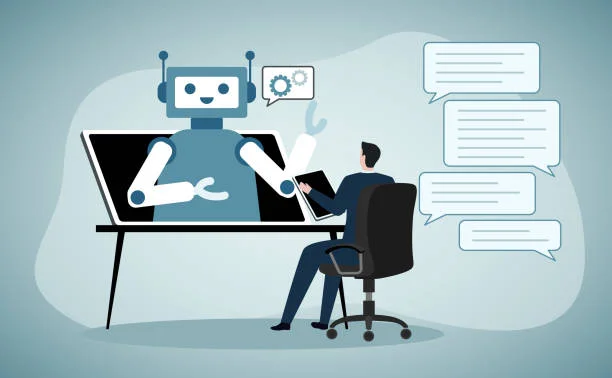
AI-Powered Tools And Technologies In Education
The secret to revolutionizing education lies within AI’s untapped potential – discover how it will reshape learning forever.
Table of Contents
- Introduction
- AI-powered tools and technologies enhancing educational experiences
- Benefits and challenges of integrating AI in education
- Case studies: Successful implementation of AI-powered tools in education
- Looking ahead: Future implications and considerations
- Conclusion
Introduction
Humanity has always strived to advance its knowledge and capabilities, and in this age of technological marvels, we find ourselves on the brink of a new educational revolution – one that is fueled by the power of artificial intelligence.
As we witness the rapid rise of AI across various industries, it comes as no surprise that the realm of education is also embracing this transformative technology. Today, we shall delve into the landscape of AI-powered tools and technologies that are reshaping the education sector, laying the foundation for a more personalized and efficient learning experience for all.
AI-powered tools and technologies enhancing educational experiences
Imagine a world where education is tailor-made for each individual, adapting to their unique strengths and weaknesses. AI offers the potential to make this dream a reality.
Unlock the Potential with AI: Get the Latest Trends & Insights
Adaptive learning platforms
With adaptive learning platforms, students can embark on personalized learning journeys that cater to their specific needs. These platforms employ AI algorithms that analyze individual performance, identify learning gaps, and generate tailored content and assessments.
Moreover, real-time feedback provided by these platforms allows students to receive immediate guidance on their progress, enabling them to make adjustments and concepts at their own pace. This not only enhances comprehension but also promotes a sense of ownership and self-directed learning.
Intelligent Assessment and Feedback
AI-based assessment tools offer more than traditional testing methods. These smart assessment platforms utilize machine learning and natural language processing to provide real-time feedback, analyzes student responses, and offer insights into their learning progress. By leveraging AI, AILA School can implement formative assessments that adapt to students’ skill levels, allowing educators to gain deeper insights into students’ comprehension and problem-solving abilities. Furthermore, AI-powered assessment tools enable timely interventions and targeted support to enhance student learning outcomes.
Benefits and challenges of integrating AI in education
The integration of AI in education brings forth a myriad of benefits, but like any new frontier, it also presents certain challenges.
Benefits
Firstly, the power of personalized learning cannot be overstated. AI allows students to embark on unique educational journeys, catered to their strengths, weaknesses, and interests. No longer restricted by a one-size-fits-all approach, students can thrive and excel in their areas of passion.
Additionally, AI-powered tools enhance student engagement and motivation. By transforming learning into an interactive and immersive experience, these technologies ignite curiosity, foster creativity, and make education more enjoyable.
Furthermore, educators can take advantage of AI to streamline administrative tasks. From automating grading to generating personalized reports, AI frees up valuable time for teachers, enabling them to focus on what truly matters – nurturing and guiding their students.
Challenges
It is crucial to recognize the ethical concerns surrounding AI in education. Data security and privacy must be prioritized, ensuring that student information remains safeguarded at all times.
Furthermore, equipping educators with the skills and knowledge to effectively leverage AI ensures a harmonious coexistence between human instructors and AI-powered tools.
“The future of education lies in embracing the transformative power of AI, creating a dynamic learning environment that empowers individuals to reach their full potential. Discover how AI is revolutionizing education”
Case studies: Successful implementation of AI-powered tools in education
In the XYZ School, the integration of adaptive learning platforms revolutionized the way students engaged with their studies. Personalized learning paths, tailored to each student’s needs, led to a significant improvement in academic performance.

Teachers reported that the platforms allowed them to identify struggling students quickly and provide appropriate interventions. The combination of real-time feedback, tailored content and interactive assessments created an environment that fostered student growth and success.
Looking ahead: Future implications and considerations
As we tread further into the realm of AI-powered education, it is essential to establish ethical guidelines to ensure that these technologies are used responsibly and ethically. Striking a balance between harnessing the potential of AI and safeguarding human values must remain at the forefront of our endeavors.
Continuous research and development should be pursued to advance AI technologies in education. This includes identifying and addressing potential biases, refining algorithms, and exploring new avenues for innovation. We must remain committed to evoking positive change in the education landscape through ongoing improvement and thoughtful implementation.
Finally, we must contemplate the future role of educators in this AI-powered era. While AI can amplify efficiency and accessibility, the human touch and guidance that educators provide are irreplaceable. It is important to ensure that educators are equipped with the necessary skills to leverage AI effectively and to act as mentors, facilitators, and inspirations for students.
Conclusion
As we conclude this intellectual journey, it becomes apparent that AI has the potential to reshape education as we know it. The integration of AI-powered tools and technologies offers a new era of personalized learning, engagement, and efficiency.
However, let us not forget that as we march forward into this brave new world, careful considerations must be made. Ethical guidelines, continuous research, and the nurturing role of educators should guide us in harnessing AI’s power for good in the realm of education, ensuring a brighter future for all learners.
Stay inspired and embrace the AI-powered future!

